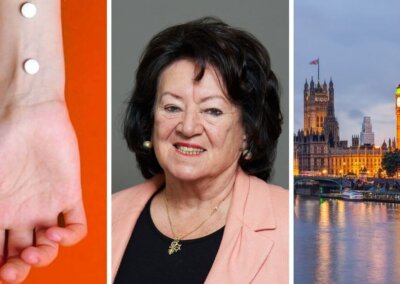The French Government has confirmed plans to have an assisted suicide draft law by the end of the summer. However, Ministers want to avoid the terms ‘euthanasia’ and ‘assisted suicide’ because of the negative connotations.
“All avenues are open” in draft euthanasia bill
Agnès Firmin Le Bodo, the Government Minister responsible for health professions, confirmed in a recent interview that “all avenues are open” as the French Government drafts a new end-of-life law.
The draft Bill seeks to address both palliative care provision and the legalisation of assisted suicide and euthanasia, or “active assistance in dying”, as it is being referred to.
Earlier in the year, French President Emmanuel Macron stated that the draft bill would be ready by the end of the summer.
It makes people think of “Nazi eugenics”
According to reports, Ms Firmin Le Bodo’s office has confirmed that the terms ‘assisted suicide’ and ‘euthanasia’ will not be used in the draft bill. This is because the term ‘assisted suicide’ conveys “the image of a depressed person” and ‘euthanasia’ makes people think of “Nazi eugenics”.
Apparently, President Macron has also confided in private that he dislikes the word ‘euthanasia’ and thinks that the term ‘assisted suicide’ is an “oxymoron”, or a self-contradiction.
French Medical Association drops protection for patients
The move to legalise assisted suicide and euthanasia in France gained momentum after a citizens’ assembly of 184 members of the public produced a report in favour of legalising the practices.
The draft bill also comes in the wake of the French Medical Association announcing in July that it is in favour of assisted suicide on “an exceptional basis”. Notably, the Medical Association is not in favour of euthanasia, which involves a third party administering the lethal drugs, but only assisted suicide, where the patient administers the drugs themselves.
Senate report blasts draft law as “dangerous”
However, the French Senate Social Affairs Committee has released a report that labels the introduction of assisted suicide and euthanasia as “dangerous”.
The authors of the report warn that, despite President Macron’s assertion that any law would be restrictive, “in almost all the countries that have authorized it, the criteria for admission to active assistance in dying have been extended or are in the process of being extended”.
Indeed, evidence from other countries shows the expansion of eligibility criteria. In the Netherlands, there were 8,720 cases of euthanasia in 2022, accounting for 5.1% of all deaths in the country. The government has recently announced plans to follow Belgium in permitting euthanasia for children of all ages.
In Canada, euthanasia is to be permitted on the grounds of mental illness and over a quarter of Canadians support euthanasia for poverty and homelessness. Euthanasia and assisted suicide now account for 3.3% of all deaths in Canada.
Change in terminology sugar-coats “deeply disturbing practices”
Right To Life UK spokesperson Catherine Robinson said “The French Government should listen to the troubling realities of euthanasia and assisted suicide in their neighbouring countries and further afield”.
“Ministers are right to be concerned about the negative connotations of assisted suicide and euthanasia. However, a change in terminology does not result in a change of these deeply disturbing practices, but only serves to sugar-coat them”.
“This draft bill should focus solely on the improvement of palliative care provision so that patients are supported to live well and die well, with the appropriate support available, irrespective of where they live”.












